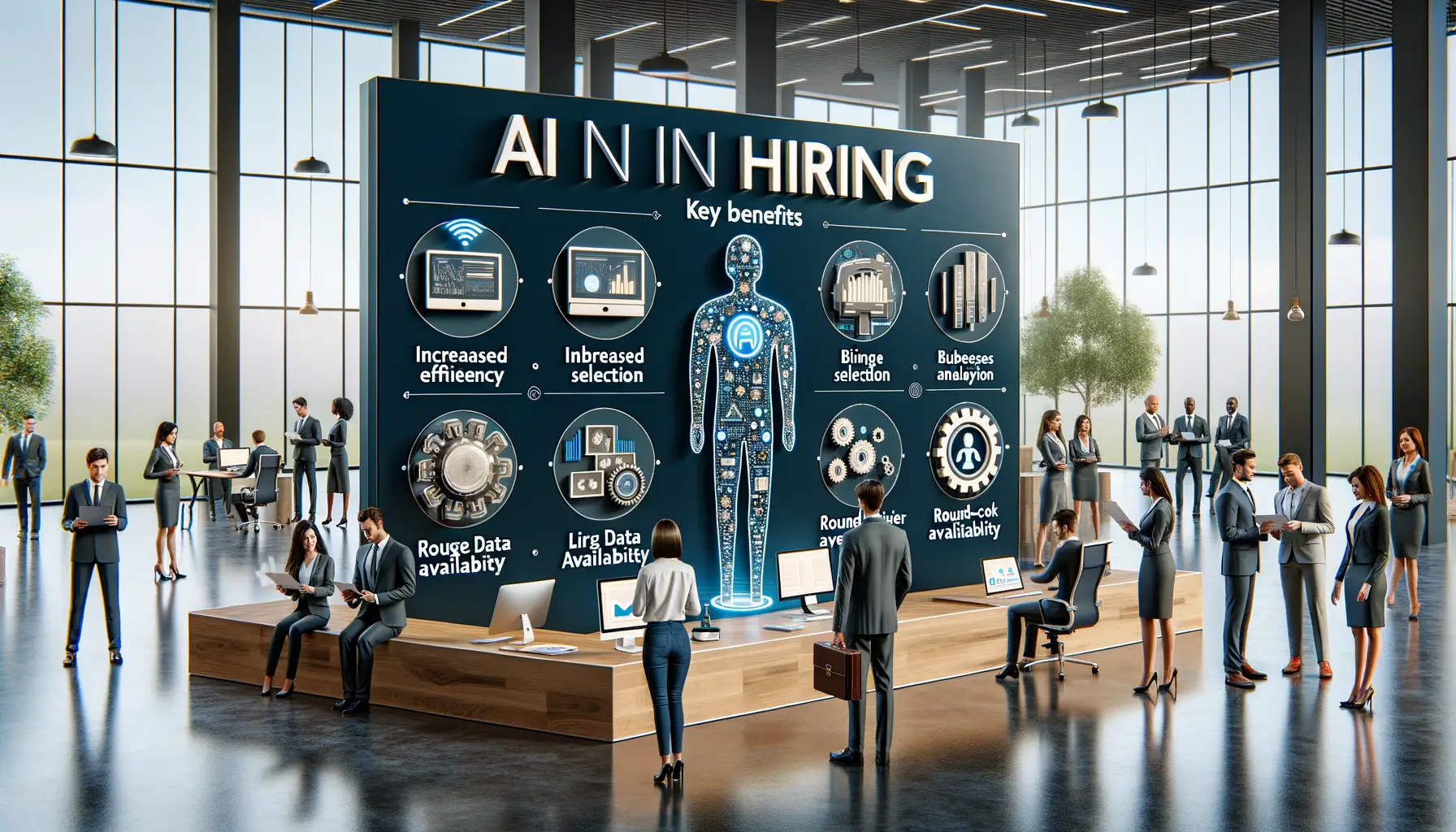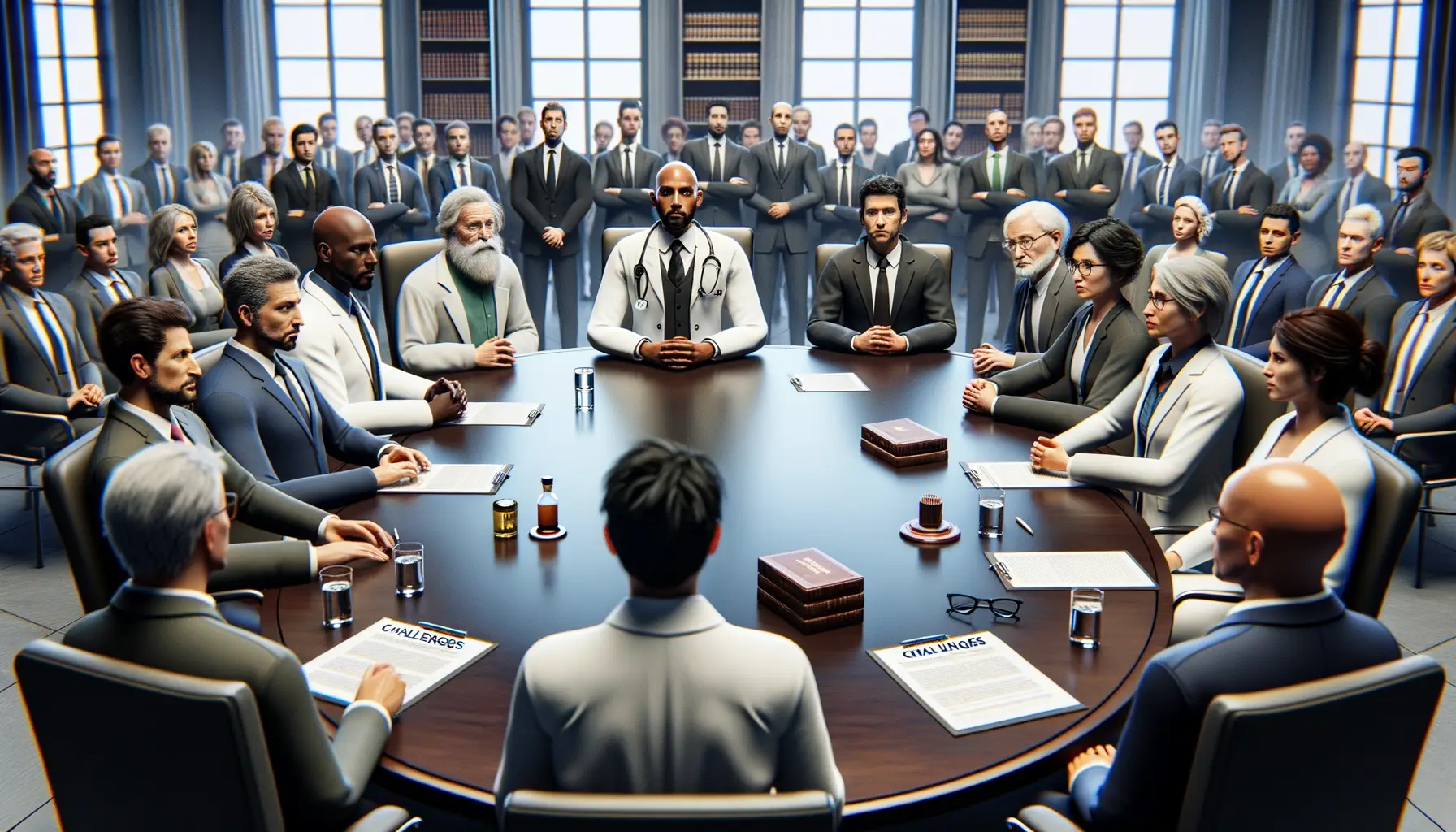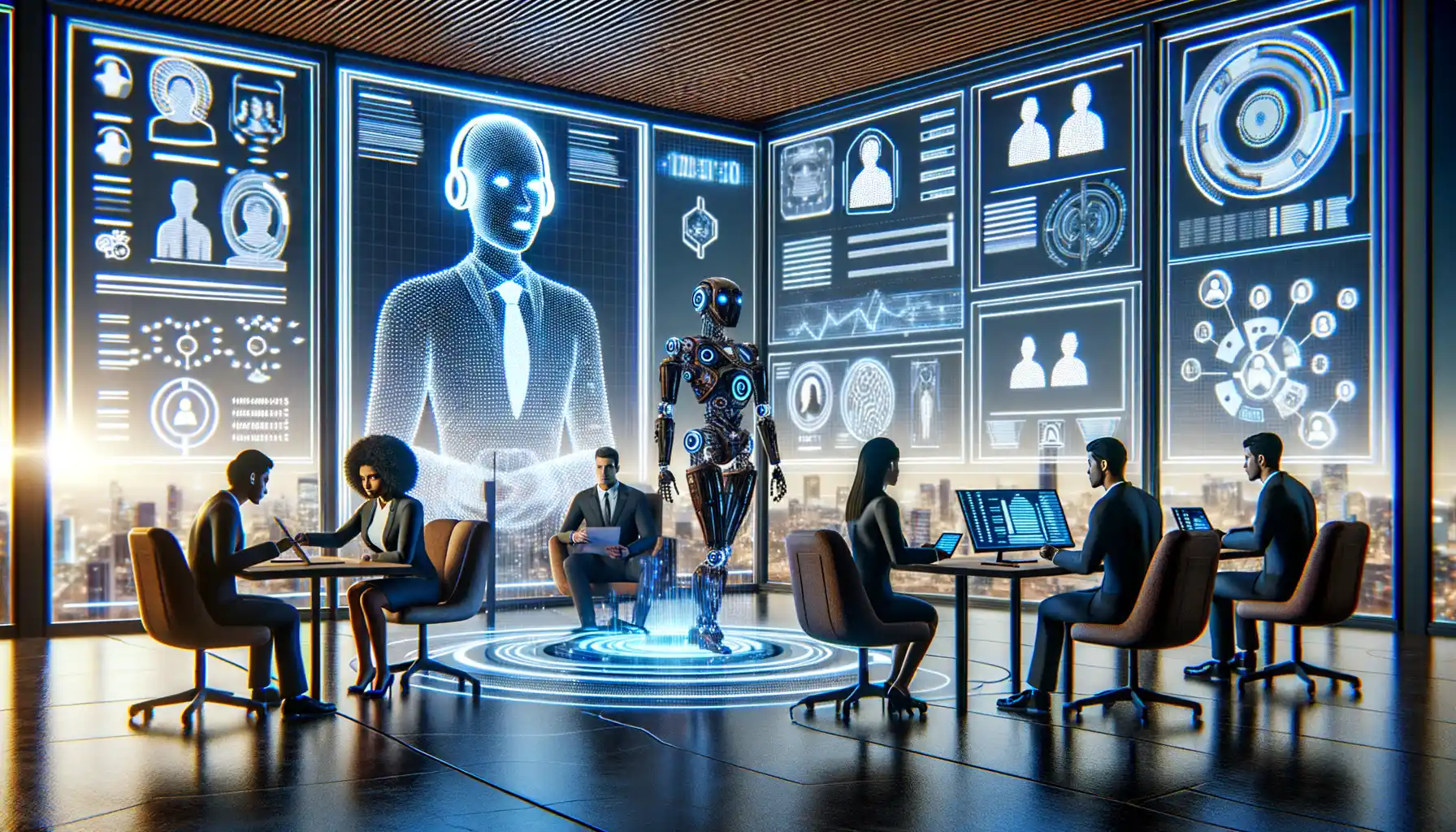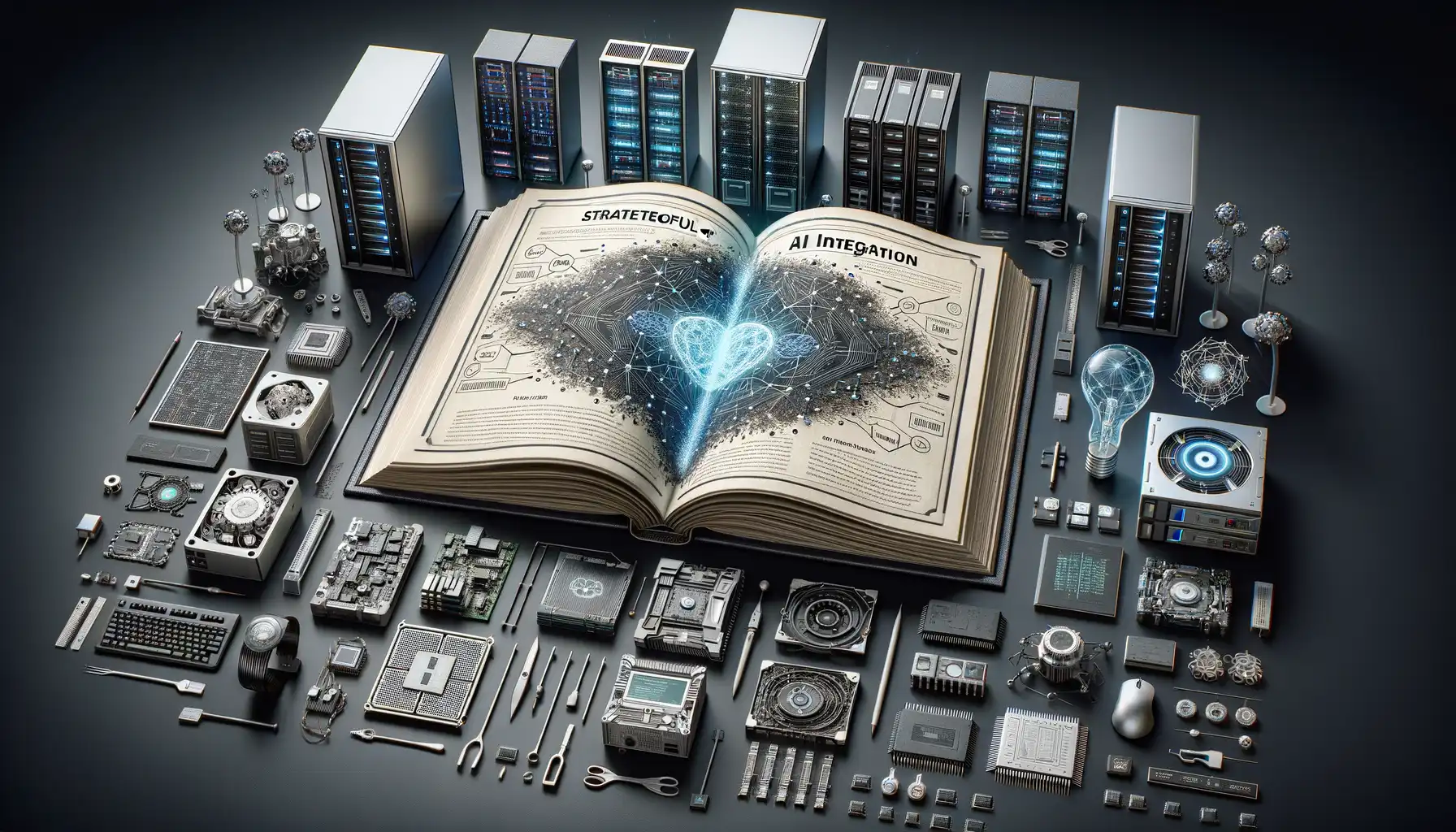Understanding AI’s Role in Recruitment
Why AI Isn’t Just Another Cog in the Recruitment Machine
Let’s face it—recruitment can feel like searching for a needle in a haystack, especially when hundreds of resumes flood your inbox for a single role. Enter Artificial Intelligence, not as a replacement for human recruiters, but as a powerful ally. Imagine having a tool that doesn’t just skim resumes—it reads between the lines, identifies hidden gems, and saves you from spending hours manually screening applicants.
But AI’s role doesn’t stop at resume parsing. It dives deeper, analyzing data to match candidates with company values and cultures. Ever met someone whose personality seemed tailor-made for their job? That’s what AI strives to replicate—minus the guesswork. And here’s the kicker: AI evolves with every hire, getting smarter over time. It’s not static; it’s dynamic, adapting to new trends in skills and roles faster than you can say “talent pipeline.”
How Does AI Add Depth to Candidate Insights?
Think beyond resumes. AI evaluates traits you can’t quantify on paper, like problem-solving, adaptability, or leadership potential. Picture this: a system that flags a candidate skilled in coding *and* communication—a rare combination that might otherwise be missed.
Here are some examples of AI’s magic in action:
- Natural language processing (NLP): Decoding the tone and sentiment of cover letters to gauge passion or clarity.
- Predictive analytics: Assessing past employee data to predict who will thrive in a particular role.
Ultimately, AI is like the trusted advisor every recruiter dreams of—offering insights you didn’t even know you needed.
Key Benefits of AI in Hiring

Streamlining the Hiring Chaos
Imagine sifting through a mountain of resumes, each one screaming, “Pick me!” Now imagine an ally—an unrelenting, detail-focused assistant who never tires or misses a beat. That’s what AI brings to the hiring process. With powerful algorithms, AI can comb through thousands of applications in seconds, spotting the diamonds in the rough that might otherwise be buried under a pile of “meh.”
Not only does it save recruiters from drowning in paperwork, but it also slashes the time-to-hire dramatically. Think about it: candidates who shine are pulled to the forefront swiftly, keeping your competition from scooping them up first.
- Resume screening: AI identifies critical skills, job titles, and achievements tailored to your job descriptions.
- Candidate engagement: Automated chatbots answer questions lightning-fast, ensuring applicants feel heard—without clogging your inbox.
Unparalleled Fairness and Precision
We all know bias can creep into even the most well-meaning recruitment processes. Here’s where the magic happens: AI operates with laser precision, focusing on objective data like qualifications and experience rather than subjective impressions. It’s like having blinders on—but in the best way possible.
By minimizing unconscious bias, you’re not just hiring faster; you’re building richer, more diverse teams. AI levels the playing field. For example, imagine two candidates—one from an Ivy League school, another with stellar relevant experience but from a lesser-known institution. AI gives both a fair shot, ensuring your team’s future isn’t determined by outdated stereotypes but by sheer talent.
Challenges and Ethical Considerations

When Innovation Meets Imperfection
AI is undeniably reshaping the recruitment landscape, but let’s not pretend it’s all smooth sailing. Behind the sleek algorithms lies a tangle of challenges that can’t be ignored. For starters, AI tools rely heavily on historical data. Sounds efficient, right? But what happens when that data is biased? If past hiring patterns unfairly favored certain groups, your shiny new recruitment software might just replicate those injustices faster than you can say “machine learning.”
And there’s the human touch—or rather, the lack of it. Imagine connecting with a nameless, faceless bot instead of a recruiter who understands your quirks, aspirations, and awkward nervous laughs during interviews. It’s unsettling when something as personal as job hunting starts to feel automated, isn’t it?
- Transparency: How much should candidates know about algorithms deciding their fate?
- Data privacy: Are applicants’ sensitive details handled securely—or are they fodder for malicious actors?
The Fine Line Between Fairness and Flaws
Even the smartest AI struggles with context. Take facial recognition software. It might struggle with diverse skin tones or misinterpret cultural expressions. What’s worse? A qualified candidate being overlooked because the system didn’t understand their résumé format. These systems don’t “think”; they calculate, classify, and react—leaving little room for empathy or nuance.
Sure, AI promises efficiency, but at what cost? When talent feels dehumanized or discriminated against by an invisible gatekeeper, are we really moving forward? Balancing innovation with ethics is more than a checkbox. It’s a moral compass we need to set now. After all, as thrilling as AI is, it’s only as good as the humanity guiding it.
Future Trends in AI-driven Recruitment

The AI-Powered Hiring Predictions We Never Saw Coming
Picture this: job interviews held in immersive virtual settings, powered by advanced AI, where candidates engage with tailored scenarios as if stepping into their future roles. Sounds like science fiction? It’s not. The future of recruitment is evolving, and AI is the engine driving this transformation forward.
Here’s what’s on the horizon:
- Hyper-personalized candidate experiences: Picture AI analyzing your career trajectory and tailoring job recommendations as if it knows your next dream role better than you do.
- Bias-busting algorithms: These tools are sharpening their ability to strip human prejudice out of hiring, making the “culture fit” conversation a thing of the past and creating more equitable workplaces.
- Predictive workforce planning: Forget reactive hiring. AI will anticipate vacancy needs before they arise, enhancing efficiency for both companies and candidates.
Welcome to the Rise of Emotional and Ethical AI
Perhaps the most surprising development? AI is learning empathy—well, sort of. Imagine a recruitment bot that scans not just resumes but emotional cues during video interviews, adapting its responses in real-time to connect more authentically. While this raises ethical eyebrows, it also introduces a profound possibility: humanized automation.
And let’s talk transparency. Future systems might even offer candidates real-time feedback during their application process, no cold silences or endless waiting. In essence, technology weaving humanity into its code base. Where will we draw the line?
Strategies for Successful AI Integration

Lay the Groundwork for Seamless Adoption
AI isn’t a magic wand you wave to transform your recruitment process overnight—it’s more like planting a garden. You need fertile soil (a clear strategy), the right seeds (tailored tools), and ongoing care (team training). First, assess your workflow. Where do inefficiencies pop up? Maybe it’s endless resume screenings or scheduling interviews. Pinpointing these bottlenecks helps you identify where AI can shine.
And let’s not forget your team. They’re the heart of this transformation. Introduce hands-on training sessions, share use cases that feel relatable, and boost confidence by showcasing how AI empowers their efforts rather than replacing them. Communication here? Non-negotiable.
Small Wins Lead to Big Impact
Start small—experiment before going all-in. A pilot phase lets you test the waters without diving into the deep end. Here are some baby steps that make a world of difference:
- Use a chatbot to handle initial candidate inquiries.
- Automate repetitive tasks like screening entry-level resumes.
- Leverage predictive analytics to improve job ad targeting.
These incremental victories build trust both with your team and leadership, paving the path towards large-scale integration. Keep feedback loops tight to fine-tune as you go—you’ll thank yourself later!







